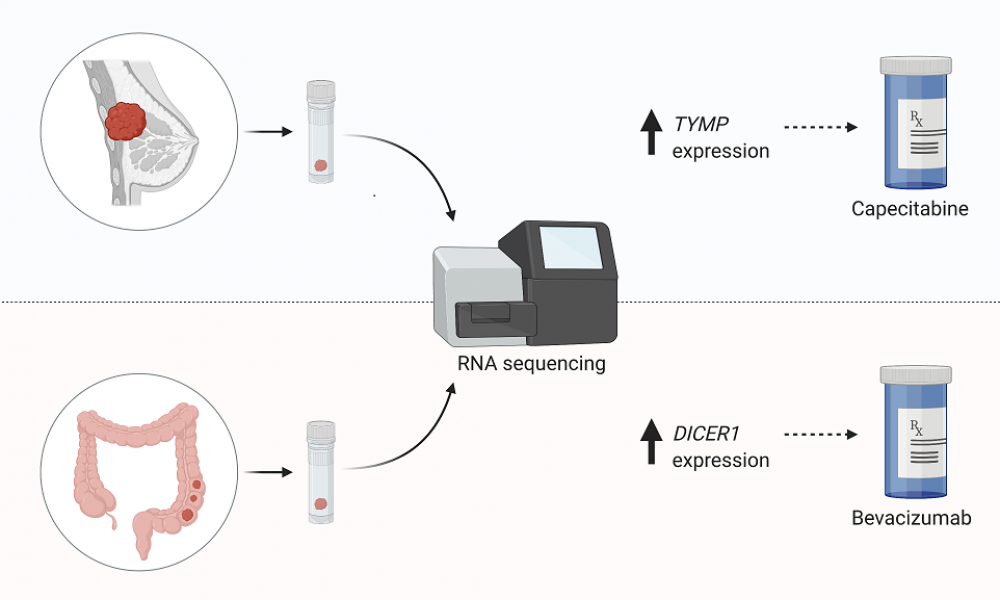
Cancer is a disease of the genome, and research has shown that the genomic alterations in a tumour influence treatment response and failure. For advanced-stage breast and colorectal cancer, tumour sequencing has now uncovered key alterations that can guide clinicians in determining the best course of treatment for their patients.
In a new study led by GSC Director and Distinguished Scientist Dr. Marco Marra and BC Cancer Pharmacy Clinical and Education Coordinator Dr. Shirin Abadi, researchers from the Personalized OncoGenomics (POG) program at BC Cancer evaluated a set of genes to determine if they could be used as biomarkers of drug resistance or sensitivity for advanced stage breast and colorectal cancer patients.
The POG program is a patient-centric research initiative that is using intensive genomic data collection and analysis to identify and better understand the genomic alterations that drive cancer growth, metastasis and response to therapies.
In the study, published in the Journal of Oncology Pharmacy Practice, researchers analyzed the transcriptomes of 59 breast cancer patients being treated with capecitabine, paclitaxel or everolimus, and 76 colorectal cancer patients being treated with capecitabine, bevacizumab, irinotecan or oxaliplatin. The team analyzed the expression of 17 genes and correlated expression levels with treatment response.
For breast cancer patients, high expression of the gene TYMP was associated with sensitivity to capecitabine, while high expression of the gene DICER1 was associated with sensitivity to bevacizumab in colorectal cancer patients. These findings suggest that mRNA expression levels of TYMP and DICER1 may be useful biomarkers to inform treatment planning for advanced stage breast and colorectal cancer patients, respectively.
“We were hoping that by doing this kind of analysis we could contribute, even in a small way, to the growing bank of data that validates the utility of genome and transcriptome analyses on personalized cancer therapies, with the ultimate goal of improving outcomes in our patients,” says Dr. Jolene Guenter, Clinical Pharmacist and lead author on the paper.
This study further demonstrates the utility of genome and transcriptome analyses to uncover trends in treatment failure and efficacy, stimulating further research and drug development and enabling clinicians to make data-informed treatment decisions.
"It has been a true privilege collaborating with an amazing team of scientists, clinicians, researchers and leaders in POG to add to the growing literature of identifying genomic biomarkers that can assist with predicting response to therapy in the complicated fields of breast and colorectal cancers,” says Dr. Abadi. “Thanks to the great leadership and exceptional expertise of Dr. Marco Marra, Dr. Janessa Laskin, and teams in POG, we are experiencing translational research at its best, paving the way for impactful personalized therapies that are revolutionizing cancer management."
Publication: Jolene Guenter, Shirin Abadi, Howard Lim, Stephen Chia, Ryan Woods, Martin Jones, Nevena Rebic, Daniel Renouf, Janessa Laskin and Marco Marra. Evaluating genomic biomarkers associated with resistance or sensitivity to chemotherapy in patients with advanced breast and colorectal cancer. Journal of Oncology Pharmacy Practice.
Learn more about the Personalized OncoGenomics program
Learn more about cancer and genomics